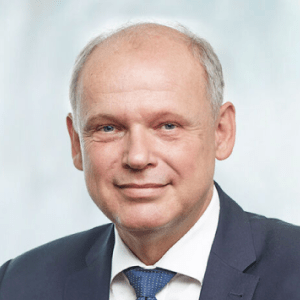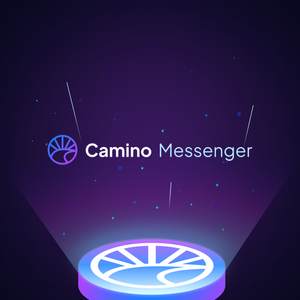Use Case in detail
Improve your operations with web3 technology
Back to overviewTour operators offer a range of services to travelers, helping them plan and book their trips. From mass market operators to specialists, the goal is to provide tailored experiences for your customers. However, the current technological state has limitations in distribution, personalization, and loyalty, something that web3 technology is about to change.


“Similar to the internet in the 1990s, Blockchain could become a game changing technology in travel. Chain4Travel is well positioned to actively drive this change and is one of the most advanced innovation companies in this field.”

Increase travel connectivity and reduce APIs with the Camino Messenger
The Camino Messenger application solves today’s lengthy and expensive connection process and enables unified, secure, and inexpensive communication for travel companies with standardized messaging types and direct connectivity. Connect to the global travel market in just 20 minutes.
Contact us for a demoExplore the opportunities of blockchain technology for tour operators and stay on top of your game, aligned with the latest technological developments. Each use case offers a brief explanation and highlights the potential benefits.
Traditional distribution models of tour operators are price-and data-driven and do not allow for new trading options, e.g., between customers, as an alternative to canceling the booking.
Leverage Camino Network's blockchain infrastructure to create additional distribution options powered by NFT technology and smart contracts providing customers with tradable rates as an alternative to inflexible vs. flexible rates and earning tour operators an extra commission. Implement trading models such as B2B(2C), B2C(2B), C2B, and even C2C, which allow customers to resell packaged holidays or certain tickets on a dedicated marketplace.
The payment and settlement process is typically complex, time-consuming, and costly.
The payment process on Camino Network will change this as all travel services along the value chain take place in a global peer-to-peer network, which is extremely fast, and results in significantly lower transaction costs. This could mean that even micro services and products could be offered online at a fraction of today's transaction cost. The settlement between suppliers, partners, and B2B customers could be done more efficiently and automated. Records on the Camino Network will provide auditable data. Another advantage is the security aspect, which is given by definition by a blockchain and reduces fraud significantly.
Large tour operators typically integrate and maintain dozens of APIs to connect to suppliers and aggregators. This poses a technical complexity and high cost while negatively affecting data security and quality.
In the future, the offering and exchange of any bookable content in the travel industry could be much easier and faster by using the Camino Network, utilizing only one connection point to the Camino infrastructure to integrate the required content and to sell to partners in the whole network.
Negotiating, coordinating, and consequently tracking and monitoring incentives is costly and sometimes doesn't equal the outcome.
Blockchain technology offers ways to rethink rewards in B2B and B2C. Token rewards such as NFTs are a great tool to incentivize the behaviors of travelers, communities, or partners, even on top of loyalty schemes. For tour operators, this could mean easier incentivization of distribution partners and customers via direct distribution, and smart contracts completely automize the coordination.
Everyone strives for loyal customers, but maintaining loyalty is time-consuming and costly. Other industries lead by example on how loyalty programs can be reinvented with web3 technologies.
With Camino Network, the travel industry has the tech infrastructure at hand to create loyalty platforms, more efficient and less costly in bringing on new collection and redemption partners, with streamlined processes and instant views of balances for the customers and partners. Also, for smaller or larger tour operators, this could bring new opportunities to easily join a loyalty program, where customers can collect & redeem in a safe and automized environment.
Today, when tour operators offer personalized rates, they mean certain customer groups entering as a member or with a certain status. However, this is not true personalization, as this is simply not possible with today’s state of technology.
Tomorrow customers are using digital wallets and currencies, sharing their transaction history, and allowing for true personalization thanks to peer-to-peer communication in the Camino network. Customers using digital wallets can receive direct offers from businesses with individual prices and offers. Also, the business can see other travels of any customer, offering special fitted journeys or activities.
People enjoy collecting moments from their trips, traditionally in the form of physical souvenirs. However, the new wave of travelers is seeking digital items to showcase their travel experiences across their online social networks.
Digital collectibles offer tour operators an innovative way to generate additional revenue streams while fostering customer loyalty. One potential approach is to create a unique NFT collection to represent exclusive experiences, local art, or memorable moments. This will add a new dimension to the traveler's journey and allow them to share their adventures inside their digital world.